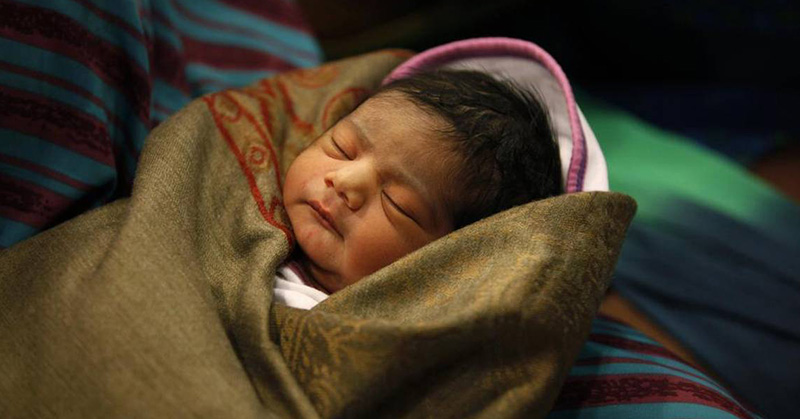Did you ever hear about the alleged 13th century study conducted by Holy Roman Emperor Frederick II? In it, babies were raised completely absent of human interaction – they were neither spoken to nor held.[1] Sounds crazy, right?
The emperor’s aim was to discover if, as the infants developed, a natural language would surface. If one did, it would be deemed the language of God.
However, according to clinical psychologist Nadene van der Linden, “[nobody] ever found out what language the babies spoke… because they died. They failed to thrive due to lack of touch and physical expressions of love.”[2]
The Age-Old Cuddle Debate
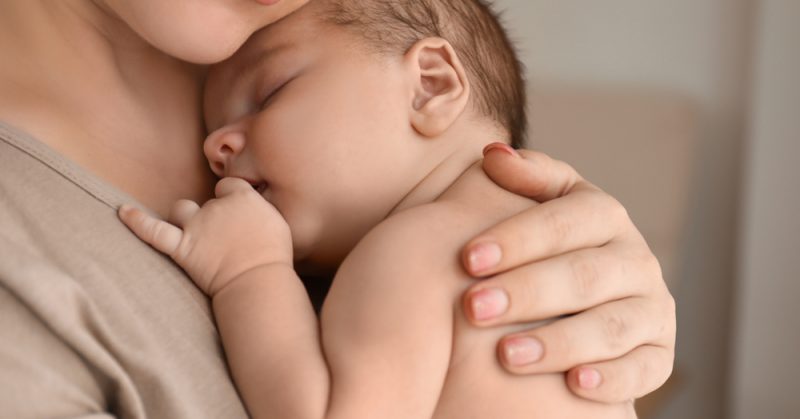
You’ve either asked or been asked the question: “Do you think cuddling your baby too much is bad for them?” After reading a story like the one above, you might be quick to think no, not one bit. And, you know what? Science would seem to agree with you.
From boosting immunity to releasing oxytocin and now, positively affecting your baby’s development, it seems pretty safe to say, “Keep calm and cuddle on.”
How Cuddling Babies Can Deeply Affect Their Biology Later in Life
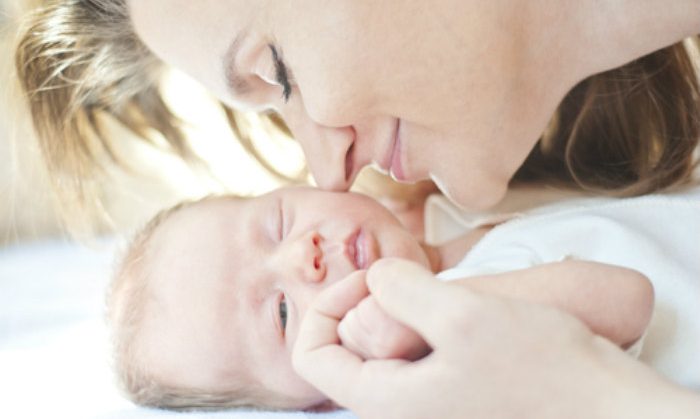
In November 2017, a study published in the journal Development and Psychopathology found that the amount of hugging an infant receives can actually alter their DNA in five areas (at least).[3]
To gather data, researchers from BC Children’s Hospital Research Institute and the University of British Columbia asked parents of newborn babies – there 94 healthy ones involved – to keep a diary their infant’s behavior and touching and cuddling habits (e.g., sleeping fussing, crying, feeding).
Although the entire study lasted between four and five years, parents were only required to record these habits for the first five weeks of postnatal care.
Were There Any Actual Benefits of Touching and Cuddling?

Upon analyzing the infants’ DNA samples swabbed from inside their cheeks, the difference between low-contact and high-contact children was visible particularly at the molecular level. In fact, they noticed at least five differences between the two groups:
“[Children] who had been more distressed as infants and had received less physical contact had a molecular profile in their cells that was underdeveloped for their age – pointing to the possibility that they were lagging biologically.”[4]
Two of the five DNA differences had to do with their immune systems and metabolism.

“In children, we think slower epigenetic aging could reflect less favorable developmental progress,” said Michael Kobor, a Professor in the Department of Medical Genetics.[4]
In other words, infants who received less physical contact may have a higher inability to thrive.
“We plan to follow up on whether the ‘biological immaturity’ we saw in these children carries broad implications for their health, especially their psychological development,” says the study’s lead author, Sarah Moore.[3] “If further research confirms this initial finding, it will underscore the importance of providing physical contact, especially for distressed infants.”
Although this study was the first of its kind using humans, it’s encouraging to know that something as simple as cuddling, especially early in life, can have drastic positive effects as deep down as children’s DNA.
Other Studies Proving the Importance of Touch for Infant Development
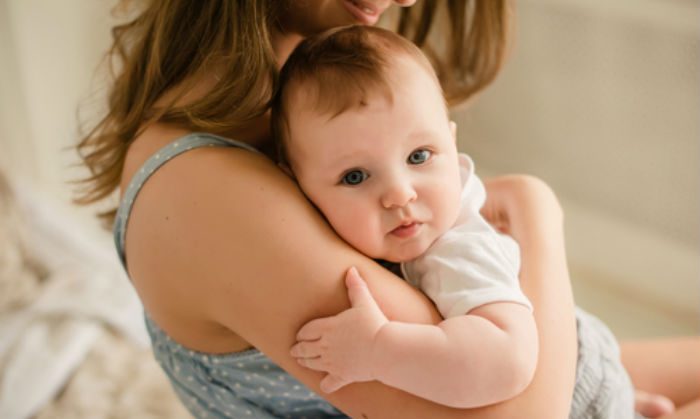
In the 1950s, American psychologist Harry Harlow used rhesus monkeys to convey the same principle. For the study, Harlow separated monkeys from their actual mothers and gave them the option of choosing between two wireframe ‘monkeys’ from which to feed – one was left with bare wire while the other was covered in soft cloth.[5]
As you can probably guess, the monkeys spent far more time with and found comfort in the cloth-covered monkey. However, when Harlow took that away leaving them with the cold, uncovered wire monkey, they exhibited severe behavioral abnormalities.
While there are numerous animal studies suggesting the benefits of touch for infants, a 2002 study published in Pediatrics found that kangaroo care (i.e., skin-on-skin contact) significantly raised premature infants’ mental and motor skills.[6,7]
Keep Calm and Cuddle On
At times, it will be exhausting and you won’t want to do it, but the physical time you spend with your own baby or grandchild can have enormous benefits both immediately and down the road.
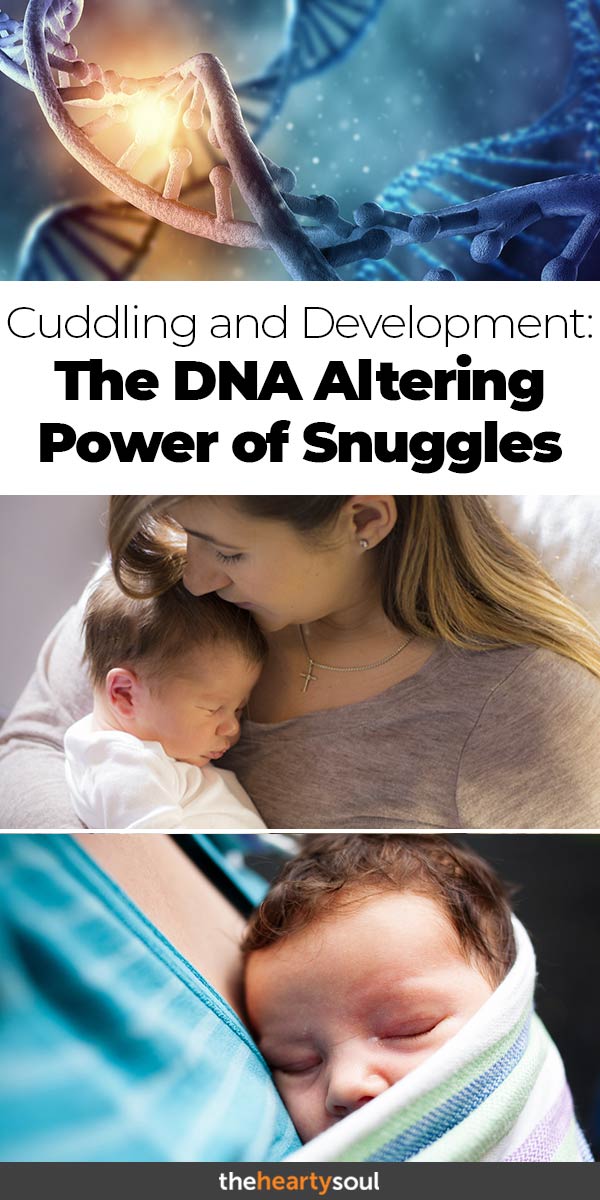
[1] Language deprivation experiments. (2018, February 17). Retrieved March 05, 2018, from https://en.wikipedia.org/wiki/Language_deprivation_experiments
[2] Nadene van der Linden. (2017, December 13). Holding Your Baby Affects Their Genes and Health, According to Study. Retrieved March 05, 2018, from https://www.parent.com/holding-your-baby-affects-their-genes-and-health-according-to-study/
[3] Moore, S. R., McEwen, L. M., Quirt, J., Morin, A., Mah, S. M., Barr, R. G., . . . Kobor, M. S. (2017, November 22). Epigenetic correlates of neonatal contact in humans | Development and Psychopathology. Retrieved March 05, 2018, from https://www.cambridge.org/core/journals/development-and-psychopathology/article/epigenetic-correlates-of-neonatal-contact-in-humans/9BD9799A7C6E0859B93E092EA0727A4B
[4] Holding infants – or not – can leave traces on their genes. (2017, November 27). Retrieved March 05, 2018, from https://www.med.ubc.ca/holding-infants-or-not-can-leave-traces-on-their-genes/
[5] Harry F. Harlow, Monkey Love Experiments. (n.d.). Retrieved March 05, 2018, from https://pages.uoregon.edu/adoption/studies/HarlowMLE.htm
[6] Feldman, R., Eidelman, A. I., Sirota, L., & Weller, A. (2002, July). Comparison of skin-to-skin (kangaroo) and traditional care: parenting outcomes and preterm infant development. Retrieved March 05, 2018, from https://www.ncbi.nlm.nih.gov/pubmed/12093942/
[7] Ardiel, E. L., & Rankin, C. H. (2010, March). The importance of touch in development. Retrieved March 05, 2018, from https://www.ncbi.nlm.nih.gov/pmc/articles/PMC2865952/
